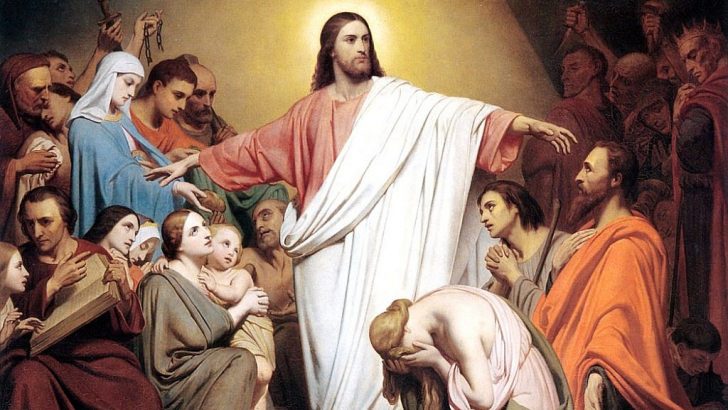Catechism of the Catholic Church
Paragraphs 50 – 74
By natural reason we can know God with certainty, based on his works. But there is another order of knowledge, which we cannot possibly arrive at by our own powers: the order of divine Revelation.
His plan of loving goodness
He reveals His mystery, His plan of loving goodness, formed from all eternity in Christ, for our benefit. God has fully revealed this plan by sending us his beloved Son, our Lord Jesus Christ, and the Holy Spirit. It pleased God to reveal himself so we can respond Him, know Him, love Him and become sharers in the divine nature and wishing to open up the way to heavenly salvation.
God communicates Himself to us gradually. He prepares us to welcome by stages the supernatural Revelation that is to culminate in the person and mission of the incarnate Word, Jesus Christ, who dwelt in us to accustom us to perceive God and to accustom God to dwell in us.
The stages of Revelation
He invited us to intimate communion with Himself and clothed us with grace and justice. This revelation was not broken off by our first parents’ sin. The covenant with Noah after the flood shows the principle of the divine economy toward us “in our lands… in our nations”.
The division in nations is intended to limit the pride of fallen humanity (Babel). Because of sin, polytheism and idolatry of rulers threaten this economy with the perversion of paganism. Scripture expresses the heights of sanctity that can be reached by those who live according to the covenant of Noah.
With this purpose, God calls Abram from his country, and makes him ‘Abraham’, “the father of a multitude of nations.” The people descended from him would be the trustee of the promise made to the patriarchs, the chosen people, called to prepare for when God would gather all his children into the unity of the Church.
After the patriarchs, God formed Israel as His people by freeing them from slavery in Egypt. He established with them the covenant of Mount Sinai and, through Moses, gave them his law. Israel is the priestly people of God and “the first to hear the word of God.” Through the prophets, God forms his people in the hope of salvation, in the expectation of a new and everlasting Covenant intended for all, to be written on their hearts.
Mediator and fullness of Revelation
Christ, the Son of God made man, is the Father’s Word. In Him He has said everything. There will be no other word than this one. Any person questioning God or desiring some vision or revelation would be guilty of foolish behaviour and of offending Him, by not fixing his eyes entirely upon Christ.
“The Christian economy, therefore, since it is the new and definitive Covenant, will never pass away; and no new public revelation is to be expected before the glorious manifestation of our Lord Jesus Christ.”
There have been “private” revelations, some of which have been recognised by the authority of the Church. They do not belong, however, to the deposit of faith. It is not their role to improve or complete Christ’s definitive Revelation, but to help live more fully by it. God desires all men to proclaim Christ to all nations through generations.
Next week we will explore paragraphs 75 to 100, ‘The heritage of faith.’


 Renata Milán Morales
Renata Milán Morales